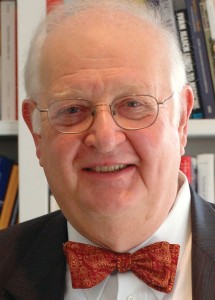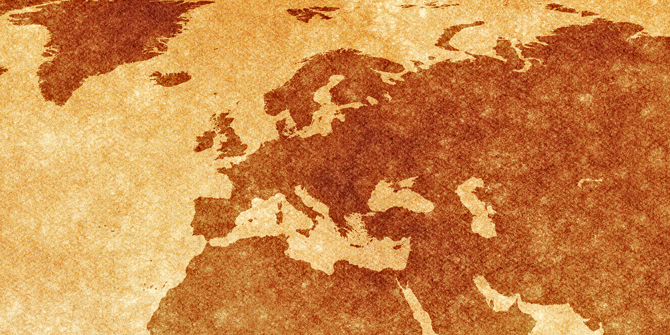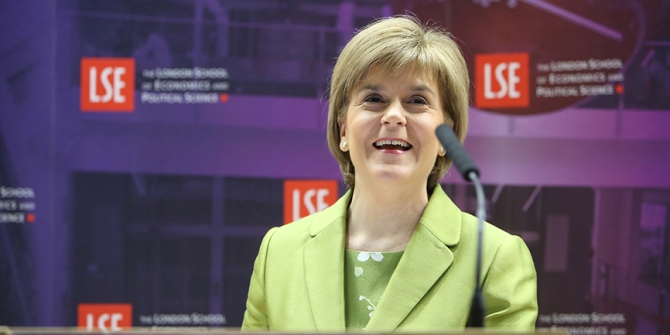 Angus Deaton is Professor of Economics and International Affairs at Princeton University. In this interview, he discusses his new book with Joel Suss, Managing Editor of the British Politics and Policy blog.
Angus Deaton is Professor of Economics and International Affairs at Princeton University. In this interview, he discusses his new book with Joel Suss, Managing Editor of the British Politics and Policy blog.
Your new book is titled “The Great Escape: Health, Wealth and the Origins of Inequality”. What is the great escape? What are the origins of inequality?
The great escape is two things: First, it is one of the basic movies that everybody knew and everybody watched in which some people break out of a German prisoner of war camp in World War II and, you know, they are very sophisticated and they dig tunnels and they make passports and fake documents and all this. And then more than 200 people get out through these tunnels and head for home. Not very many of them make it, which is something we might come back to but it was the great escape. So I use that as a sort of running analogy for the real great escape of the book which is people escaping from a sort of prison of early death, destitution, having very little – living as slaves, no democracy, no education. All the things we take for granted today, at least in some of the world, people didn’t have and so they’re escaping to freedom from the sort of “unfreedoms” of those things.
The fact that some have escaped necessarily creates inequality, you point out. So the fact that there’s inequality shows that progress is happening for some. You also discuss the ‘dark side’ of inequality.
It’s complicated, right? Because it’s not, in the first instance, just bad. I mean, you don’t think that the people who got out of the prisoner of war camp made it that much worse for the people that were in. But let me give you an analogy which I think shows the ambiguity of the problem. In 1964 there was a very famous report in the United States by this surgeon general which was the first to many Americans definite evidence that smoking was really bad for your health. And, you know, that saved a lot of lives because people, they made their escape from addiction to cigarettes because they knew this new information. But one story I tell in this book is that this surgeon general, who’s a gentleman called Luther Terry, was chain smoking on his way to the press conference where he was going to introduce the surgeon general’s report. His aide was sitting next to him in the car and said “Dr Terry, I should prepare you for this, you’re not going to like it but the first question you will be asked is ‘do you smoke’?” and Luther Terry says “that’s ridiculous! That’s a private question, that’s nothing to do with public health”, you know, how dare they? And the aide said “Well, you know, I’m just telling you” and the first question was “Do you smoke” and Luther Terry said “No, I do not smoke” and they said “When did you quit?” and he said “20 minutes ago!”
Turning that story on it’s head; here’s the surgeon general, he’s a physician and quit within 20 minutes of his own report. Most physicians quit pretty quickly after that too. Most educated people followed. Most wealthy people followed. So then what you had was the people left behind. Now you don’t think that’s bad because you know, OK a lot of people did better, no one’s worse off that they were before, why is the world a worse place? But 50 years later when those inequalities are still there does that seem such a good thing? There’s some structural inequality there which is very – seems very hard to erase and it seems morally very ambiguous. So that’s one sort of inequality that seems really problematic. There are many others.
In your book you say that inequality perpetuates itself, especially when the very rich have no stake in public health or public education. Can you elaborate on that a bit more?
So that’s the dark side of inequality. On the bright side, if the returns for going to school go up then there’s a big incentive to go to school and that brings you up and that seems terrific. On the other hand if you don’t have the talent to go to school you get left behind and there’s nothing you can do about it. And that sort of inequality doesn’t seem like such a good inequality and the people who don’t have that talent are relatively worse off than they were before. But the really dark side is what you just talked about, which is this issue when you get extreme income inequality and these people that are very very wealthy. They’re so wealthy they hardly need any government. They don’t need government education, they don’t need healthcare, they may not even need the police or the law courts because they can buy lawyers and policemen or whatever. They’re relatively independent of these things that the rest of us really need and so they have no interest in paying taxes. So it’s very much in their interests to undermine the provision of public goods.
You know the government shutdown that recently ended in the United States? The fact that it was fought over the healthcare extension, and the fact that that strategy was developed wealthiest people in the United States is a very good illustration of the sort of themes I’m talking about.
You are concerned about the future of democracy because of this growing inequality. Can you elaborate on this?
I think it’s worse in the United States that it is in the United Kingdom because of the pervasive importance of money in politics. But the lobbying that’s become very important in the United States is not just the buying of politics, you can do that anywhere. I think it’s much less important in the UK still, but, before Brits get too complacent about “this would never arise here”, it didn’t use to be very important in the United States either. There’s been an enormous increase in it. In fact the real problem from an economist’s point of view is why isn’t there more of it? Because the rewards for lobbying can be ginormous and the cost of lobbying is way smaller than the rewards so why isn’t there a lot more? I think Gordon Tullock was the first to raise that question of why isn’t there more money in politics? That’s the real puzzle. Basically if the rich can write the rules then we have a real problem.
A couple colleagues of mine have recently written books in which they studied voting patterns in the US Congress and matched them up with the preferences of the constituents of those Congressmen. And they’re very closely aligned with the preference of their wealthy constituents and not at all aligned with the preference of the poor constituents. So there’s a real movement of democracy in the direction of plutocracy and that is something to worry about. On the other hand I don’t think the game is over yet. We may or may not already be at half time or something. If you think about the last election in the United States, one of my favourite stories is that, you know the plutocrats really thought they’d won and they had bought enough polls in pleasing direction to believe themselves that Romney was going to win. Apparently you could not park your private jet in Boston because every fat cat in the country who contributed to the Romney campaign had parked there for the victory party, which of course never took place. So that’s a case where the money did not overcome democracy in that way. And so, the more recent crisis is some attempt to come back at that and so there’s an endless battle over those issues going on but I don’t think we’re done yet.
The book focuses on two aspects which are important for “the good life” which you say are material well-being and health – why do you look at these together?
Because I think you make a terrible mistake if you don’t. My regret is that I don’t know enough or couldn’t write a big enough book to bring other aspects of freedom in there like democracy, education, the ability to migrate, for instance, which is something I don’t really talk about at all and I think is very important. We’ve become very specialised, so economists are left to think about income, doctors left to think about health, and political scientists to think about politics. “That’s your business, this is my business” sort of idea. But if people get richer but they’re totally disenfranchised, that doesn’t seem like such a good deal. If people get richer and their health gets worse, or someone else’s health gets worse as a consequence of them getting richer, it doesn’t seem like such a great idea either.
Even in just the most mundane policy planning, health is becoming more and more expensive, so people are developing cures for cancer but they involve drugs that cost the earth. Are we going to give those to people? If you’re in Britain that would be paid for collectively. But there’s a real cost, so do you really want to, you know, give up people’s pensions for example in exchange for a few months extra life from leukemia for instance? There are some real hard choices there to be made there and you can’t think of them as, you know, “we should just do everything we can to extend people’s lives” or “we should keep people as rich as possible”.
Now that the top 1% or top .1% continue to amass an ever greater share of society’s wealth – where are we headed? Are you pessimistic or optimistic?
The future is enormously hard to predict, as you know! I think there’s a lot of danger and some days I’m pessimistic and other days it seems like…there are forces on both sides of this and you know, people don’t really like being messed around with. One thing we haven’t talked about is the slow down in economic growth in the United States and other rich countries too, and I think that makes all of this that much more poisonous because if the pie’s growing you can give people extra slices without hurting what you have. But when the pies not growing, the only way I’m gonna get something is by taking away from you guys.
About
 Angus Deaton is the Dwight D. Eisenhower Professor of Economics and International Affairs at the Woodrow Wilson School of Public and International Affairs and the Economics Department at Princeton University. My main current research areas are in health, wellbeing, and economic development.
Angus Deaton is the Dwight D. Eisenhower Professor of Economics and International Affairs at the Woodrow Wilson School of Public and International Affairs and the Economics Department at Princeton University. My main current research areas are in health, wellbeing, and economic development.








Comment…Heartly Congrass! for won the Nobel Award, 2015. I would be happy if u discuss about India’s Health and Poverty indetail.Bcs my P.hd. is related with Health Outcomes and Infra